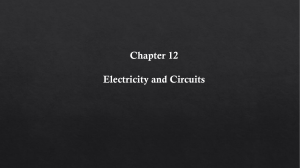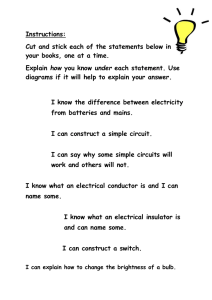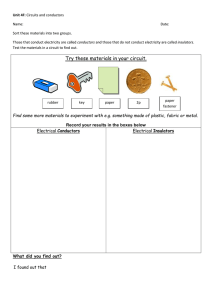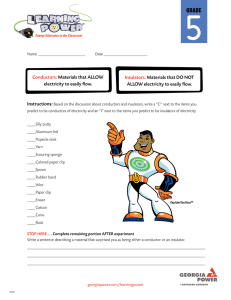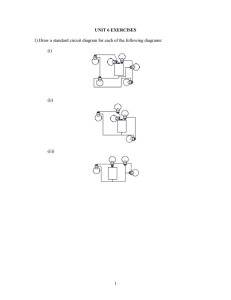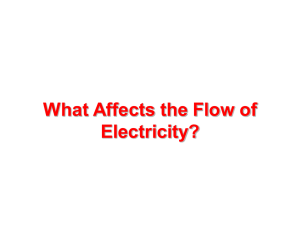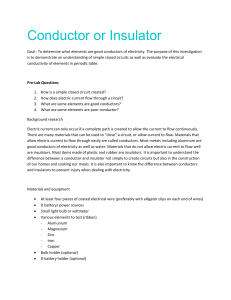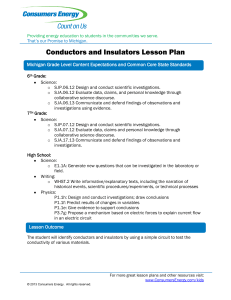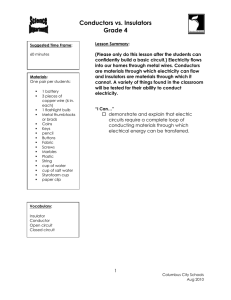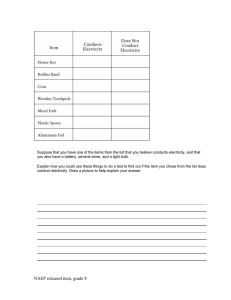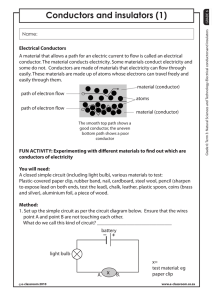Conductors and Insulators Materials Conductor Insulator Write a one
advertisement
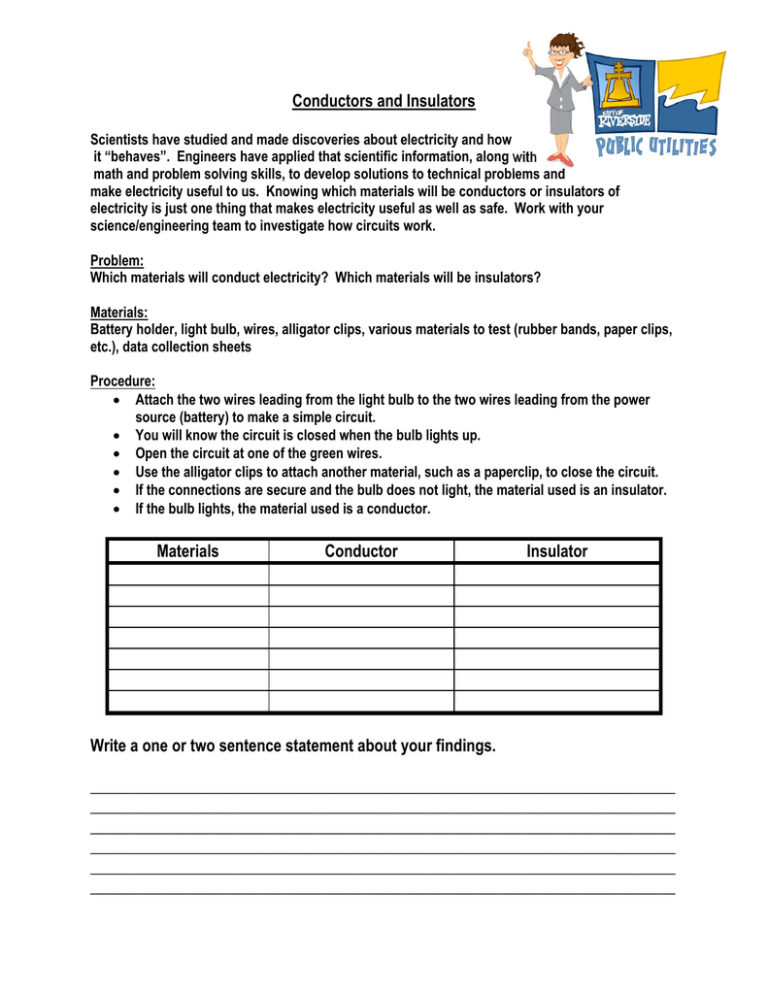
Conductors and Insulators Scientists have studied and made discoveries about electricity and how it “behaves”. Engineers have applied that scientific information, along with math and problem solving skills, to develop solutions to technical problems and make electricity useful to us. Knowing which materials will be conductors or insulators of electricity is just one thing that makes electricity useful as well as safe. Work with your science/engineering team to investigate how circuits work. Problem: Which materials will conduct electricity? Which materials will be insulators? Materials: Battery holder, light bulb, wires, alligator clips, various materials to test (rubber bands, paper clips, etc.), data collection sheets Procedure: Attach the two wires leading from the light bulb to the two wires leading from the power source (battery) to make a simple circuit. You will know the circuit is closed when the bulb lights up. Open the circuit at one of the green wires. Use the alligator clips to attach another material, such as a paperclip, to close the circuit. If the connections are secure and the bulb does not light, the material used is an insulator. If the bulb lights, the material used is a conductor. Materials Conductor Insulator Write a one or two sentence statement about your findings. _________________________________________________________________________ _________________________________________________________________________ _________________________________________________________________________ _________________________________________________________________________ _________________________________________________________________________ _________________________________________________________________________
